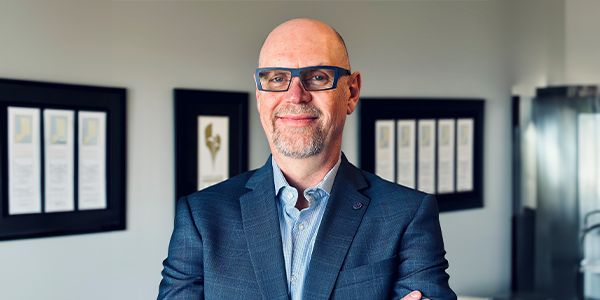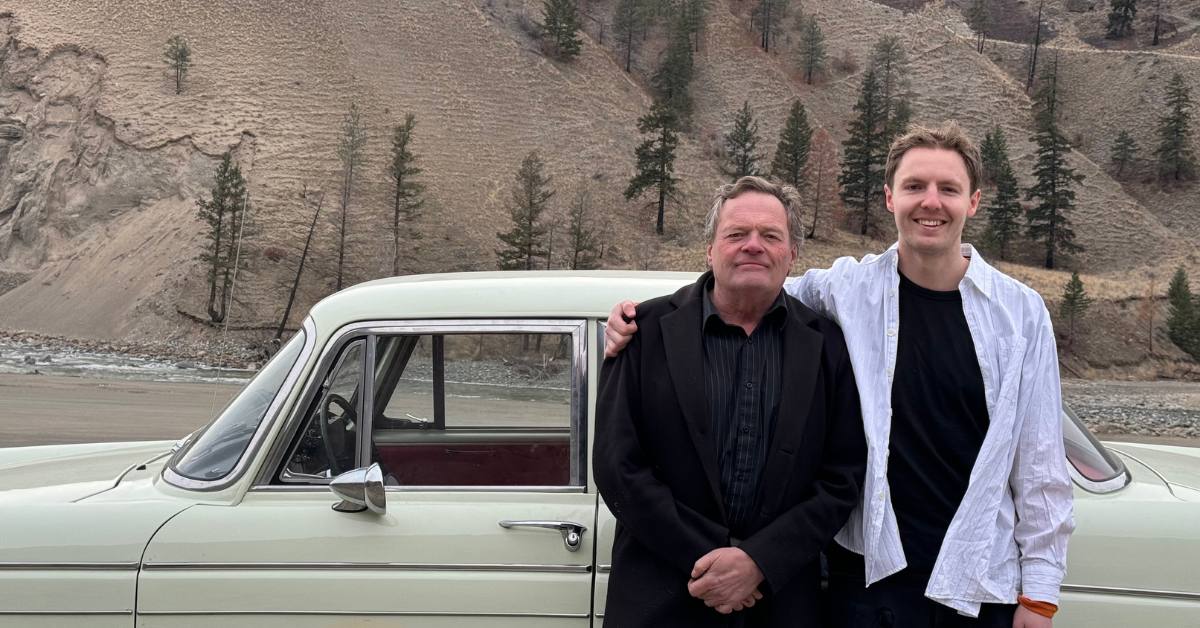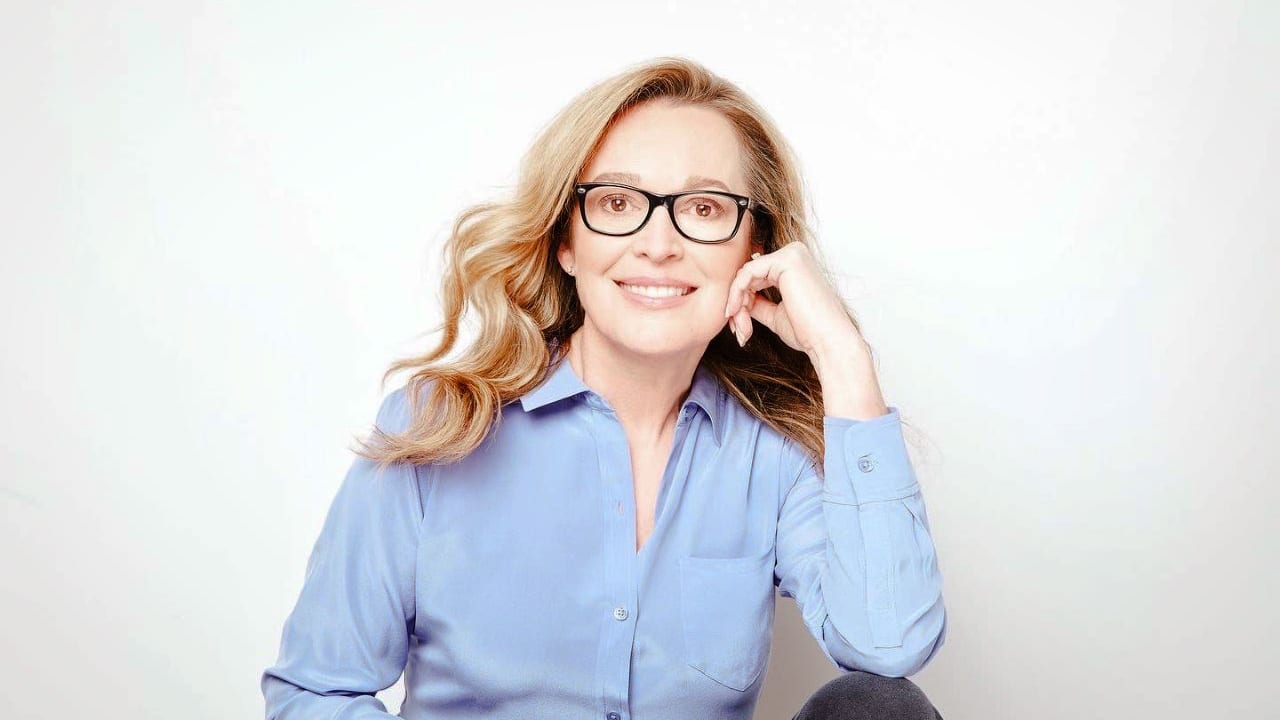If you think your commute is bad, consider Kenton Boston’s before he became President and CEO of the Canadian Men’s Health Foundation (CMHF).
“I used to joke that I lived in Vancouver and worked in Toronto,” Kenton says of his 17-career as a media executive for Global News and Corus Entertainment. “It was a high-stress job with lots of travel, managing hundreds of employees, and dealing with the fallout of an industry in decline.”
On the one hand, Kenton’s switch to leading a non-profit organization was driven by a desire to give back to the communities and people he had long served through the media. “I always felt that journalism made a difference in people’s lives by sharing breaking news, sports scores, investigative stories and so on. It’s the same thing with the CMHF: We’re offering a service that makes a difference and impacts how people live their lives.”
On the other hand, Kenton’s health journey has strengthened his connection and commitment to the cause of men’s health. “I ultimately had to reassess who I was and my priorities in life. I was diagnosed with a rare form of cancer, and the only way to beat it was to stop doing what I had done for so many years and refocus on getting well.”
For Kenton, as with all of us, the end of one journey marked the beginning of another.
Listen to a recent podcast with Kenton below.
The first indication that things weren’t right
It was the fall of 2019, and something “wasn’t right” with Kenton’s ribs. “It felt like Jell-O being pushed through on the left side,” he recalls, adding that beyond this peculiar sensation, he considered himself a healthy guy. He worked out regularly, enjoyed nutritious meals, and got the sleep he needed despite his hectic schedule.
What he didn’t do was go to the doctor. Instead, he went to a chiropractor, thinking his ribs were misaligned. “I barely took a moment to think about it. Go to the chiropractor, hop in the car, drive to the airport, get on a plane to Toronto, sit through a bunch of meetings, go to the gym early in the morning, rinse and repeat.”
The chiropractor suggested Kenton see a doctor, so an ultrasound was added to the sequence of events. Then came a surprise addition: An urgent request to find a safe space in Toronto for a call with the clinic. “I was told I had a large mass around my left kidney and that I should get in touch with my family doctor immediately.”
Misdiagnosis and challenges
In the interim, however, the COVID-19 pandemic had forced the ultrasound clinic to close, making it impossible for Kenton to access the images for his family doctor. “With everything in lockdown, I became pretty frantic, knowing that I had a mass but not knowing anything else about it. Was it benign? Was it cancer? It was surreal.”
The images were eventually sent to his GP, and shortly afterwards, Kenton met with a urologist at St. Paul’s Hospital in Vancouver. It was determined that there was no immediate cause for worry, as the results didn’t indicate cancer. “I was, of course, very relieved, and life carried on.
As things began reopening, I went back to the chiropractor. At this point, my rib cage had popped out even more, and I couldn’t move my left arm very well. But I had convinced myself it must be something from working out or that it must be caused by the stress I was under.”
The chiropractor suggested he see a doctor again and get a second opinion, “He told me I really needed to get whatever was in there taken out,” Kenton recalls. “So I did.”
Initial surgery

Kenton’s plan for June of 2020: Take two days off work for a quick surgery—telling no one except his wife—and then go on a motorcycle trip.
But you know what they say about the best-laid plans. When Kenton awoke after surgery, he immediately noticed a much-larger-than-expected incision in his abdomen. “The surgeon explained that she had to get her hand inside to pull out a grapefruit-sized object,” he recalls.
The extremely good news was that the object was thought to be benign—the bad news was post-surgical bleeding and dropping hemoglobin levels. Although prepped for another surgery, the bleeding stopped just in time, allowing Kenton to be discharged instead of undergoing another procedure.
A quick operation and motorcycle trip had turned into a week of recovery, with Kenton unable to do much besides lie down.
This is not to say that he stopped working. Instead of attending in-person meetings, he took them virtually, fully reclined on his couch. And he did not mention the surgery to anyone at work. “I just carried on; I was too busy not to. Maybe I was naive in that I got the answer I wanted. My sister had died of cancer 11 years earlier, so I knew how the conversations played out. But the doctors were adamant that mine was benign because they had never seen cancer in that specific location.”
Diagnosis and second surgery
There is, of course, a first time for everything. Upon reviewing Kenton’s pathology report, the doctor instructed him to travel to Toronto immediately, as the supposedly benign object was, in fact, a rare and aggressive form of cancer requiring urgent treatment. The plan was to remove the cancer for good through highly invasive and rigorous surgery.
A conference call with Kenton’s family was hastily arranged. ”It was ironic: My whole life in those days was conference calls. I had a conference call to tell my parents, ‘We’ve all gone through the loss of my sister and grandparents, and now, guess what? I have a rare form of cancer.’ It was even harder to have that conversation with my kids.”
With the procedure only a few weeks away, Kenton shared the news with his direct boss and a few other colleagues. It wasn’t until shortly before leaving for surgery that he told everyone at work. “The biggest challenge was not knowing what to say. Will I live? Will I not live? Do I come back to work? What does life look like on the other side? I didn’t know how to face those questions and didn’t want to burden anybody.”
When Kenton finally shared his situation, he was overwhelmed by the support. “It may not always seem like it in this world of ours, but there is so much empathy out there. Sometimes, you have to go and get it, even if it feels hard.”
Coping and recovery
While the surgery was a resounding success, the 18-month recovery was gruelling. “I thought, ‘Hey, I’ll be out of the game for three months, and then I’ll be back and ready to go.’ So it was a big shocker when I had no energy to even lift my arm, let alone sit or stand. I wasn’t able to eat on my own. Many days, I just looked at the clock and waited for a minute to go by, and then the next minute, and then another minute. It was also tremendously hard that my kids couldn’t be with me because of COVID.”
While the isolation of the pandemic was challenging, it also had its merits. “It made things easier because I had one thing to do: get better. There was almost no other noise.”
What noise there was proved to be comforting and inspiring. “I couldn’t articulate it at the time, but I read and reread hundreds of messages of support and encouragement from my family, friends and co-workers, and they made an enormous impact on me.”
The physical and mental impact of the surgery was on an even greater scale. “Recovery has been a journey of getting things back, like the ability to speak clearly in the early days. Anxiety is something that hits me now. Pre-surgery, I could go through enormous stress and still go to bed and sleep. Now, it’s a constant battle to calm myself down. I’m still working through why my body has changed the way it has. It still feels like it’s in fight mode, so I’m in protection mode.”
Lessons learned
For others facing major health challenges, Kenton offers these words of advice:
- “Take the time to think about it, don’t brush it off, and make sure you’re comfortable with the decisions and conversations you’re having with the medical community.”
- “Make sure you understand the reasoning behind your decisions and all the risks involved.”
- “You may only get one shot at your procedure, so you want to ensure that wherever you land on the other side, you can look at yourself in the mirror and say you owned your health journey.”
- “You have to be your own best advocate, and you’ve got to spend time listening to your body, which isn’t always easy.”
- “In general, men need to be more open to sharing. I’ve talked to various therapists, but I know I need to do more of this and become more focused on my mental health.”
Drawing on experience to help others
Few organizations align more closely with Kenton’s passion for owning his health than CMHF. The national registered charity is on a mission to empower men and their families to live healthier with evidence-based information to help improve and save lives. Kenton emphasizes a key stat, explaining that 70 percent of men’s health problems are preventable by adopting a healthier lifestyle.
“As I talk to other men, their families, and members of their surrounding communities, it becomes clear that we all have the same wants and needs. So when I share my own health journey, it’s a uniting force because achieving good health is something we all want. Some people get there relatively easily; for others, like me, it’s harder. The whole idea behind our message is that small, easy changes in lifestyle can have a big impact on health.”
One of Kenton’s priorities is to focus on specific male demographics most in need. According to a new study by the foundation:
- The risk of moderate-to-severe depression is significantly higher in young Canadian men aged 19 to 29 (43%), racialized men (30%), and gay or bisexual men (28%) than it is in the broader male population (18%).
- Moderate-to-high anxiety is significantly higher in Canadian men aged 19 to 29 (57%), gay or bisexual men (45%), and racialized men (42%) than it is in the broader male population (30%).
“We want to be the front line where men and their families can access information and tools on our website,” Kenton says. “It’s about letting people across Canada know they’re not alone. One of the hardest things is to step forward and say, ‘I need help.’ If people reach out, we can connect them to professionals and start making a difference in the lives of many Canadians.”
And all without having to commute anywhere.





Let’s Talk!
Did you enjoy this article? Let us know in the comments.
0 Comments